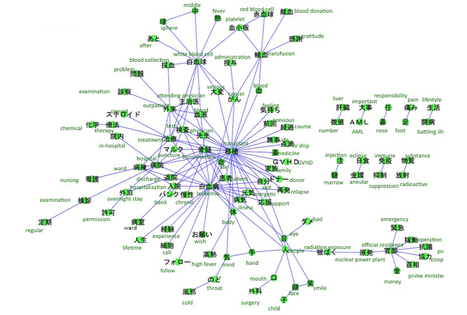ABSTRACTBackground: Twitter is an interactive, real-time media that could prove useful in health care. Tweets from cancer patients could offer insight into the needs of cancer patients.
Objective: The objective of this study was to understand cancer patients’ social media usage and gain insight into patient needs.
Methods: A search was conducted of every publicly available user profile on Twitter in Japan for references to the following: breast cancer, leukemia, colon cancer, rectal cancer, colorectal cancer, uterine cancer, cervical cancer, stomach cancer, lung cancer, and ovarian cancer. We then used an application programming interface and a data mining method to conduct a detailed analysis of the tweets from cancer patients.
Results: Twitter user profiles included references to breast cancer (n=313), leukemia (n=158), uterine or cervical cancer (n=134), lung cancer (n=87), colon cancer (n=64), and stomach cancer (n=44). A co-occurrence network is seen for all of these cancers, and each cancer has a unique network conformation. Keywords included words about diagnosis, symptoms, and treatments for almost all cancers. Words related to social activities were extracted for breast cancer. Words related to vaccination and support from public insurance were extracted for uterine or cervical cancer.
Conclusions: This study demonstrates that cancer patients share information about their underlying disease, including diagnosis, symptoms, and treatments, via Twitter. This information could prove useful to health care providers.
Via Giuseppe Fattori, Celine Sportisse, Lionel Reichardt / le Pharmageek, Usalbiomedica



 Your new post is loading...
Your new post is loading...











An example of observing how patients communicate about their diseases using social media... even in Japan.
Japanese cancer patients or those tweeting in Japanese may share information about their cancer experience on twitter, as is also the case in USA and